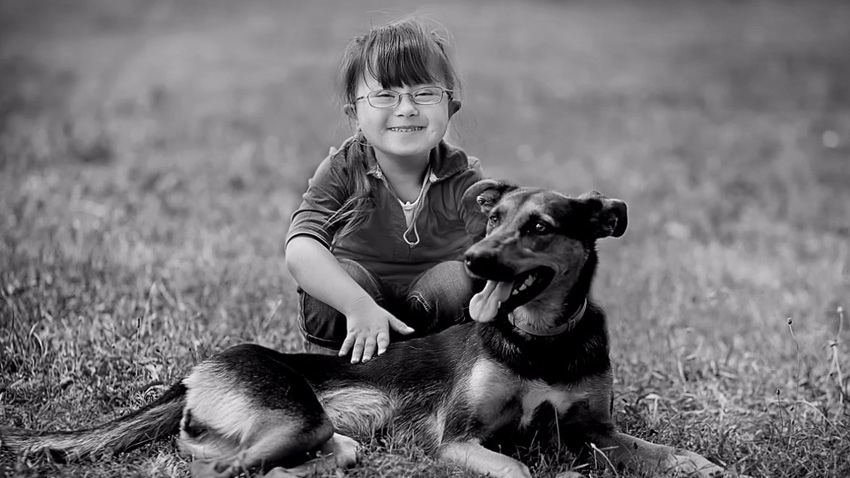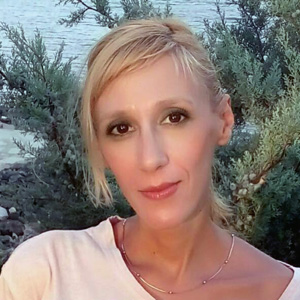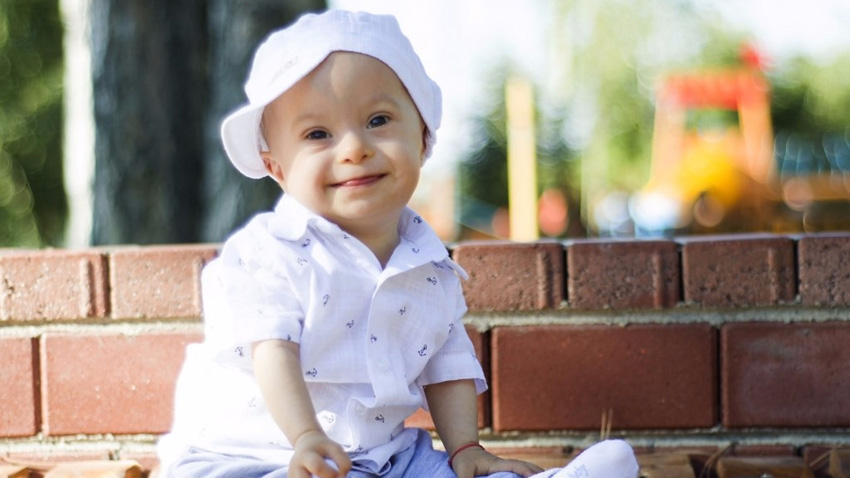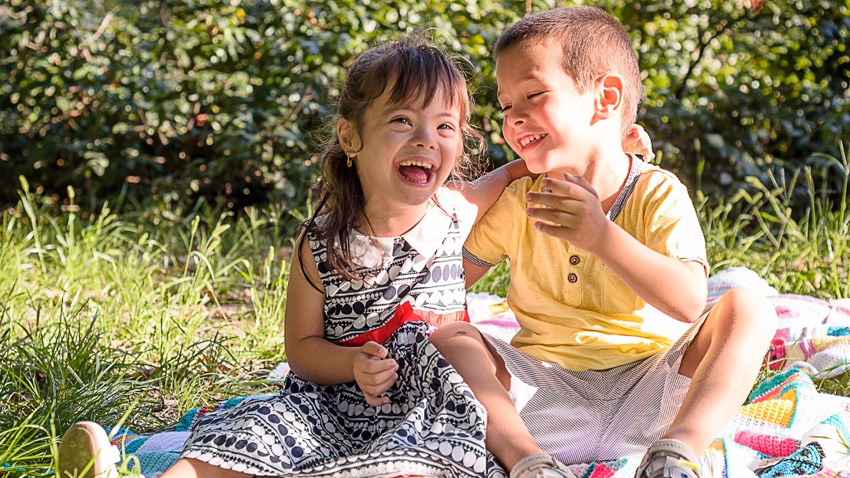Forty-seven looks like a neutral figure. Forty-seven chromosomes - only one word is added and things look differently, frighteningly: it's all about Down's syndrome. Forty-seven Smiles of kids with Down's syndrome will welcome visitors of the Seaside Park in Varna from today till 17 September. The photo exhibition has been organized by the association of their parents and the message is that life is better when there are more smiles around.

 Tony Marinova is one of the mothers who was faced with the problem of an extra chromosome and like any other parent suffered a shock. In 2009 she gave birth to her baby girl Yanitsa and today is grateful to the Association of Parents with Children with Down's Syndrome who helped her to stand back on her feet again.
Tony Marinova is one of the mothers who was faced with the problem of an extra chromosome and like any other parent suffered a shock. In 2009 she gave birth to her baby girl Yanitsa and today is grateful to the Association of Parents with Children with Down's Syndrome who helped her to stand back on her feet again.
“For me the diagnosis Down's syndrome was very frightening. I thought of it as something like a cruel verdict. But I was wrong - after the birth my life continued with a new rhythm and new things. For sure such a child is in need of greater care and dedication from parents but this does not necessarily mean suffering in the family. On the contrary, it depends on the point of view and on the regulations in a country.”
After the birth of Yanitsa her mom found out that doctors tried to intervene in the personal choice of the horrified parents:
 “In the maternal ward some doctors try to persuade mothers to abandon their children with Down's syndrome to institutions. However, today this syndrome is not what it used to be back at the time doctors studied medicine. Medicine has made progress and they ought to be aware of this. Some of them maintain the myth that kids with Down's syndrome tend not to live long. Today accompanying conditions are successfully treated, heart malformations are corrected by means of surgery and children have the chance to develop thanks to the adequate assistance of speech therapists, psychologists and other specialists. We read a lot online and contact with people across the world - this keeps us well informed. And above all, we have trust in our children. The fact that more often today they go to common schools and develop together with their coevals makes them very different from kids with Down's twenty years ago.”
“In the maternal ward some doctors try to persuade mothers to abandon their children with Down's syndrome to institutions. However, today this syndrome is not what it used to be back at the time doctors studied medicine. Medicine has made progress and they ought to be aware of this. Some of them maintain the myth that kids with Down's syndrome tend not to live long. Today accompanying conditions are successfully treated, heart malformations are corrected by means of surgery and children have the chance to develop thanks to the adequate assistance of speech therapists, psychologists and other specialists. We read a lot online and contact with people across the world - this keeps us well informed. And above all, we have trust in our children. The fact that more often today they go to common schools and develop together with their coevals makes them very different from kids with Down's twenty years ago.”

Unfortunately, more often than not teachers are not trained how to assist adequately children with special needs.
It is a matter of luck to come across someone who would trust in the child's potential and risk. Yanitsa was lucky - she goes to a common nursery school and is the special friend of all kids in her group. One day when her friends grow up they will kiss goodbye to still existing taboos about people with special needs. In the meantime, we could stop for a while in front of photographs of the smiling children - it is said that they also carry the syndrome of love.
English Daniela Konstantinova
A Christmas tree with Bulgarian decorations has been placed in a central location at the Griffin Museum of Science and Industry in Chicago. For the fifth consecutive year, Bulgarians living in Chicago crafted the lavish decoration of the Bulgarian..
The usurpation of cultural heritage is one of the many inevitable consequences of any military conflict, both historically and today. Until the end of the war in Ukraine, it is impossible to adequately analyse the extent of the damage caused to the..
Athens plans to modernise the Greek army by 2030 Greece's Defence Minister Nikos Dendias presented the plan for changes in the army to the parties in parliament. The reforms will cover all three branches of the military. By 2030, 33 units..
On December 14 and 15, just days before the Christmas holidays, Plovdiv will once again host EXOTIC EXPO – the Bulgarian professional exhibition for..

+359 2 9336 661
